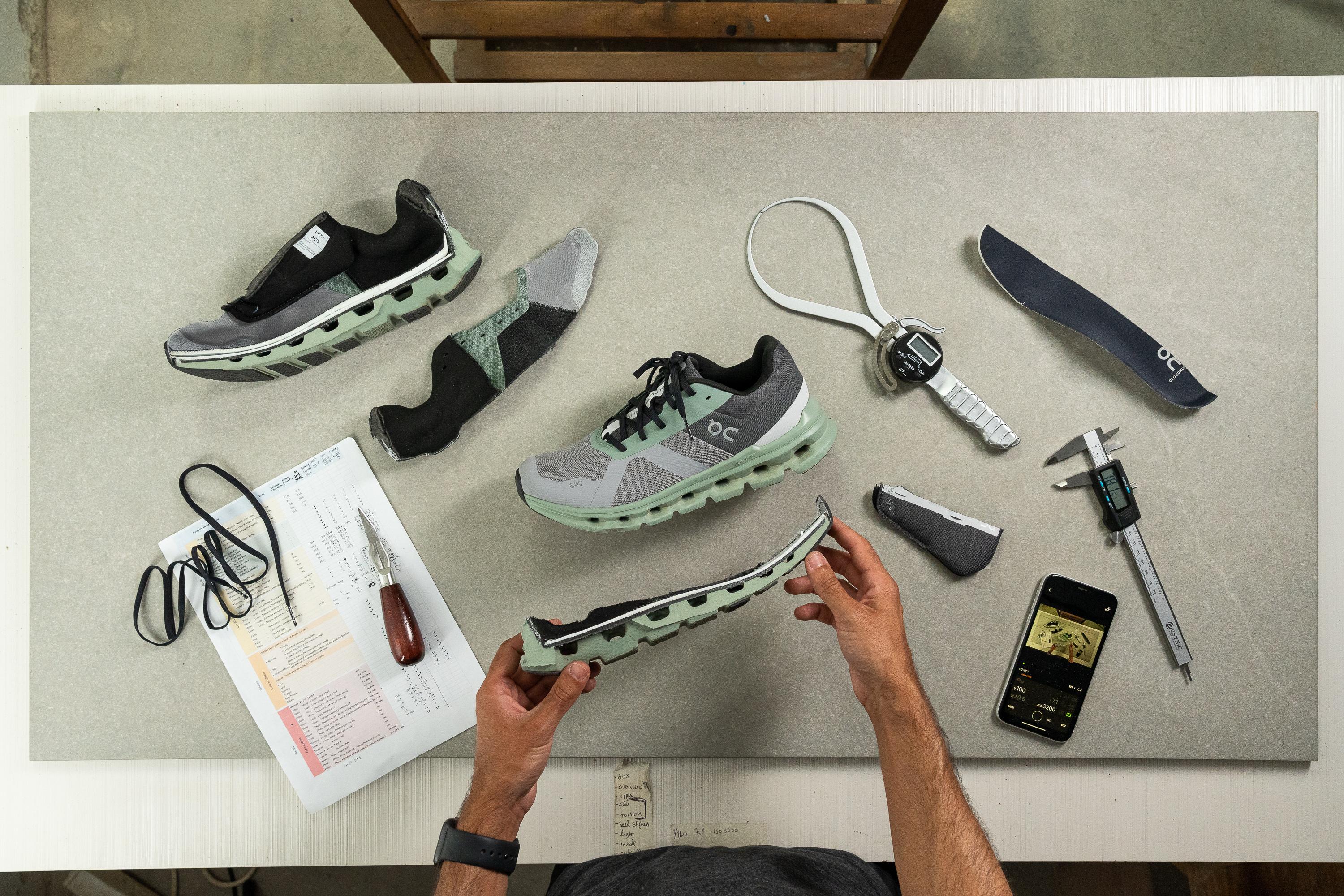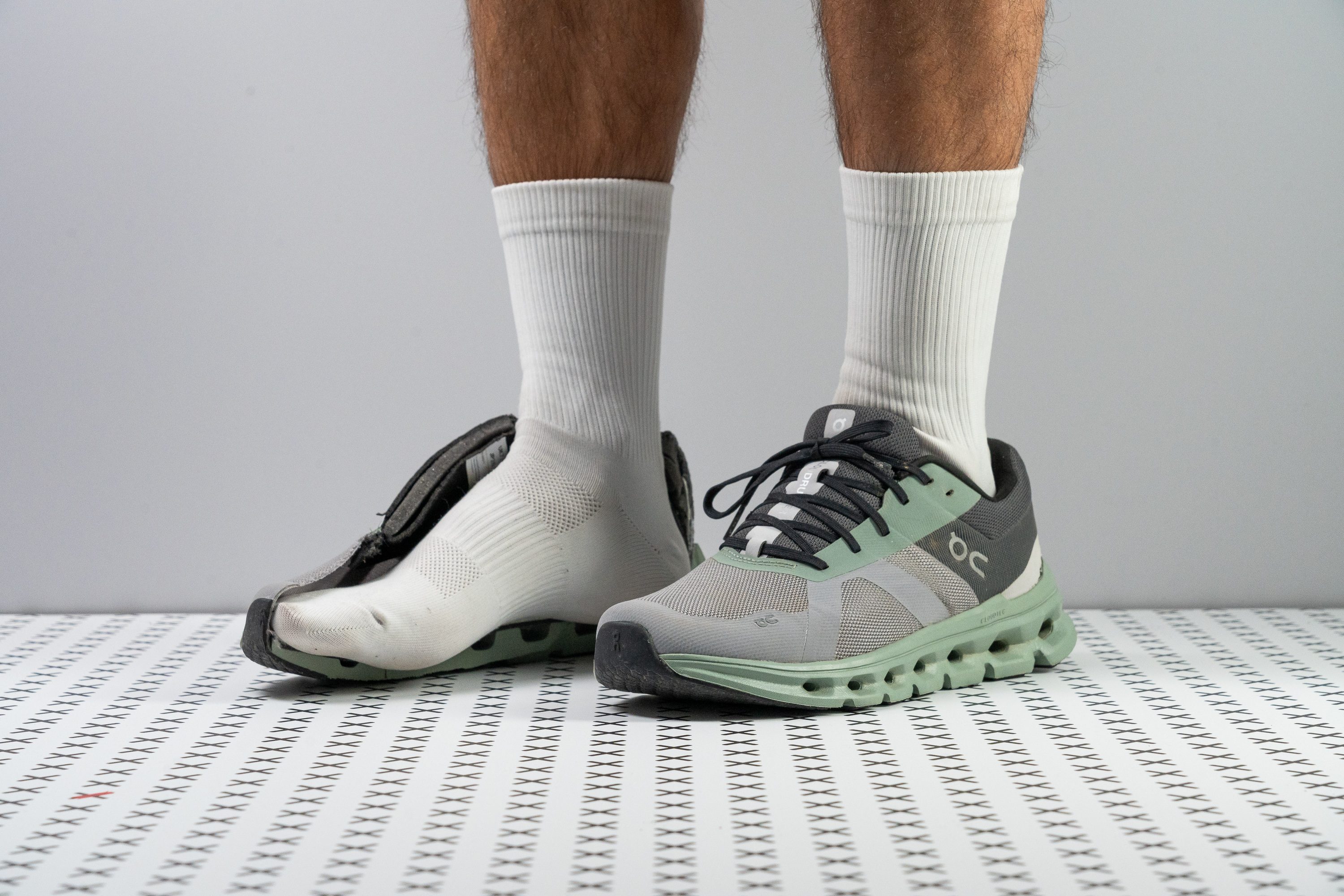Our verdict
Pros
- Unintrusive stability
- Versatile (walking, gym, casual)
- Well-fitting
- Doesn’t catch pebbles
- Good breathability
- Lasting durability
- Appealing design
- Recycled content (30-35%)
- Recycled content (30-35%)
Cons
- Not for severe overpronation
- Firm ride
- A bit heavy
- Lacks forefoot cushioning
Audience verdict
- Top 22% in road running shoes
- Top 26% in On running shoes
- Top 26% most popular running shoes
Comparison
The most similar running shoes compared
+ + Add a shoe | |||||
|---|---|---|---|---|---|
| Audience score | 90 Superb! | 87 Great! | 88 Great! | 83 Good! | |
| Price | £150 | £110 | £140 | £160 | |
| Pace | Daily running | Daily running | Daily running | Daily running | |
| Shock absorption | Moderate | Moderate | Moderate | Low | |
| Energy return | Moderate | High | Moderate | Low | |
| Traction | Moderate | - | High | Moderate | |
| Arch support | Stability | Stability | Neutral | Stability | |
| Weight lab Weight brand | 10.4 oz / 294g 10.6 oz / 300g | 10.3 oz / 293g 10.5 oz / 297g | 9.7 oz / 275g 9.8 oz / 277g | 11.6 oz / 329g 11.3 oz / 320g | |
| Drop lab Drop brand | 12.4 mm 9.0 mm | 9.8 mm 10.0 mm | 8.5 mm 10.0 mm | 7.9 mm 10.0 mm | |
| Strike pattern | Heel | HeelMid/forefoot | HeelMid/forefoot | Mid/forefoot | |
| Size | Slightly small | True to size | True to size | True to size | |
| Midsole softness | Firm | Firm | Balanced | Balanced | |
| Difference in midsole softness in cold | Normal | Small | Small | Normal | |
| Toebox durability | - | Decent | Decent | Good | |
| Heel padding durability | - | Good | Decent | Good | |
| Outsole durability | - | Bad | Decent | Good | |
| Breathability | Moderate | Warm | Moderate | Moderate | |
| Width / fit | Narrow | Medium | Medium | Narrow | |
| Toebox width | - | Wide | Medium | Medium | |
| Stiffness | Moderate | Stiff | Stiff | Moderate | |
| Torsional rigidity | Moderate | Moderate | Moderate | Stiff | |
| Heel counter stiffness | Flexible | Moderate | Stiff | Moderate | |
| Rocker | ✓ | ✗ | ✗ | ✗ | |
| Heel lab Heel brand | 33.3 mm 28.5 mm | 32.9 mm 31.0 mm | 33.6 mm 39.0 mm | 33.2 mm 31.0 mm | |
| Forefoot lab Forefoot brand | 20.9 mm 19.5 mm | 23.1 mm 21.0 mm | 25.1 mm 29.0 mm | 25.3 mm 21.0 mm | |
| Widths available | NormalWide | Normal | NormalWide | Normal | |
| Orthotic friendly | ✓ | ✓ | ✓ | ✓ | |
| Season | All seasons | All seasons | All seasons | All seasons | |
| Removable insole | ✓ | ✓ | ✓ | ✓ | |
| Ranking | #138 Top 21% | #177 Top 47% | #137 Top 36% | #262 Bottom 31% | |
| Popularity | #172 Top 26% | #354 Bottom 7% | #54 Top 15% | #144 Top 38% |
Cushioning
Shock absorption
Those chasing max-cushioned comfort should skip the Cloudrunner—it’s more of an old-school trainer with low shock absorption, especially in the forefoot area with just 72 SA. The heel offers better impact protection with 118 SA though.
Its ground-connected ride feels better suited for everyday wear or gym sessions, but not for long runs.
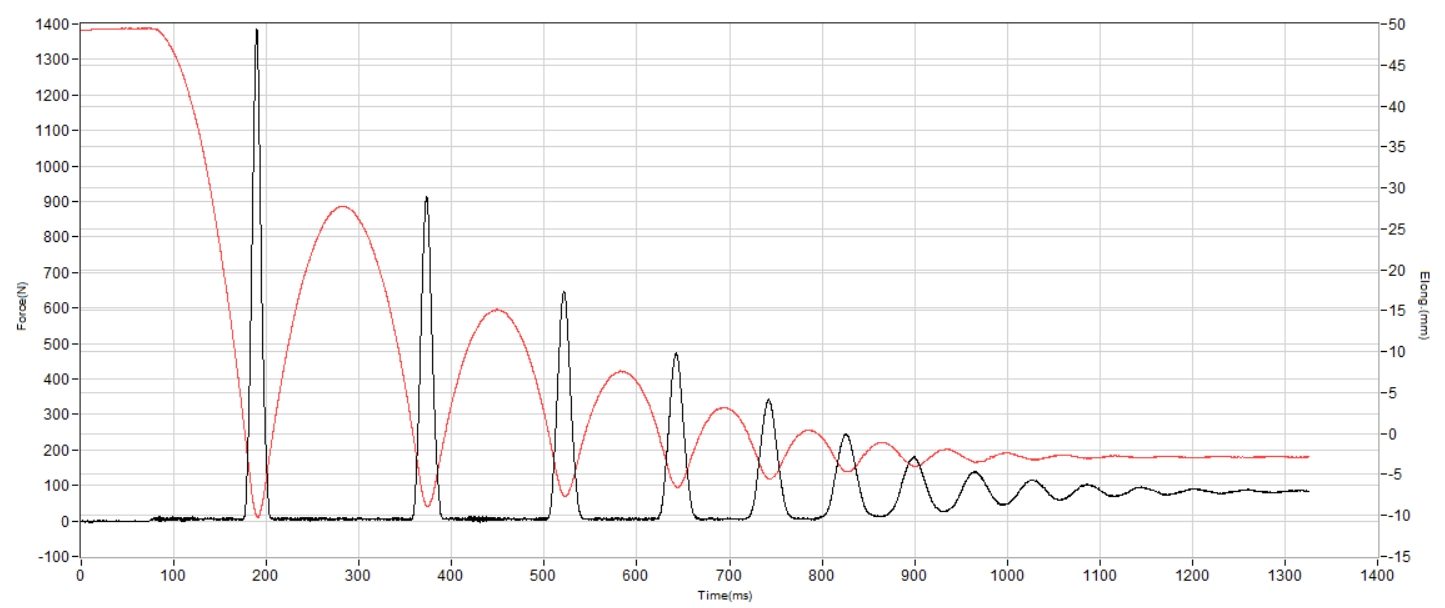
| Cloudrunner | 118 SA |
| Average | 130 SA |
Energy return
While the Cloudrunner doesn't stand out for energy return, we found it performs better than most other On trainers. It delivers 57.5% in the heel and 61.2% in the forefoot.
| Cloudrunner | 57.5% |
| Average | 58.6% |
Size and fit
Size
On Cloudrunner fits slightly small (283 votes).
Traction / Grip
Traction test
We recorded a 0.36 score. For us, that's a bit of an underwhelming result, especially from a brand known for its premium-grade materials. While the shoe offers reliable grip on dry surfaces and manages decently in light rain, we’re hoping for a noticeable improvement in future updates.
| Cloudrunner | 0.36 |
| Average | 0.49 |
Flexibility / Stiffness
We found that the midsole’s firm structure limits natural flexion, but On countered this by carving multiple grooves into both the midsole and outsole—helping to maintain an everyday-ready, comfort-driven ride.
During our 30-degree bend test, we measured 15.7N of force—right around average.
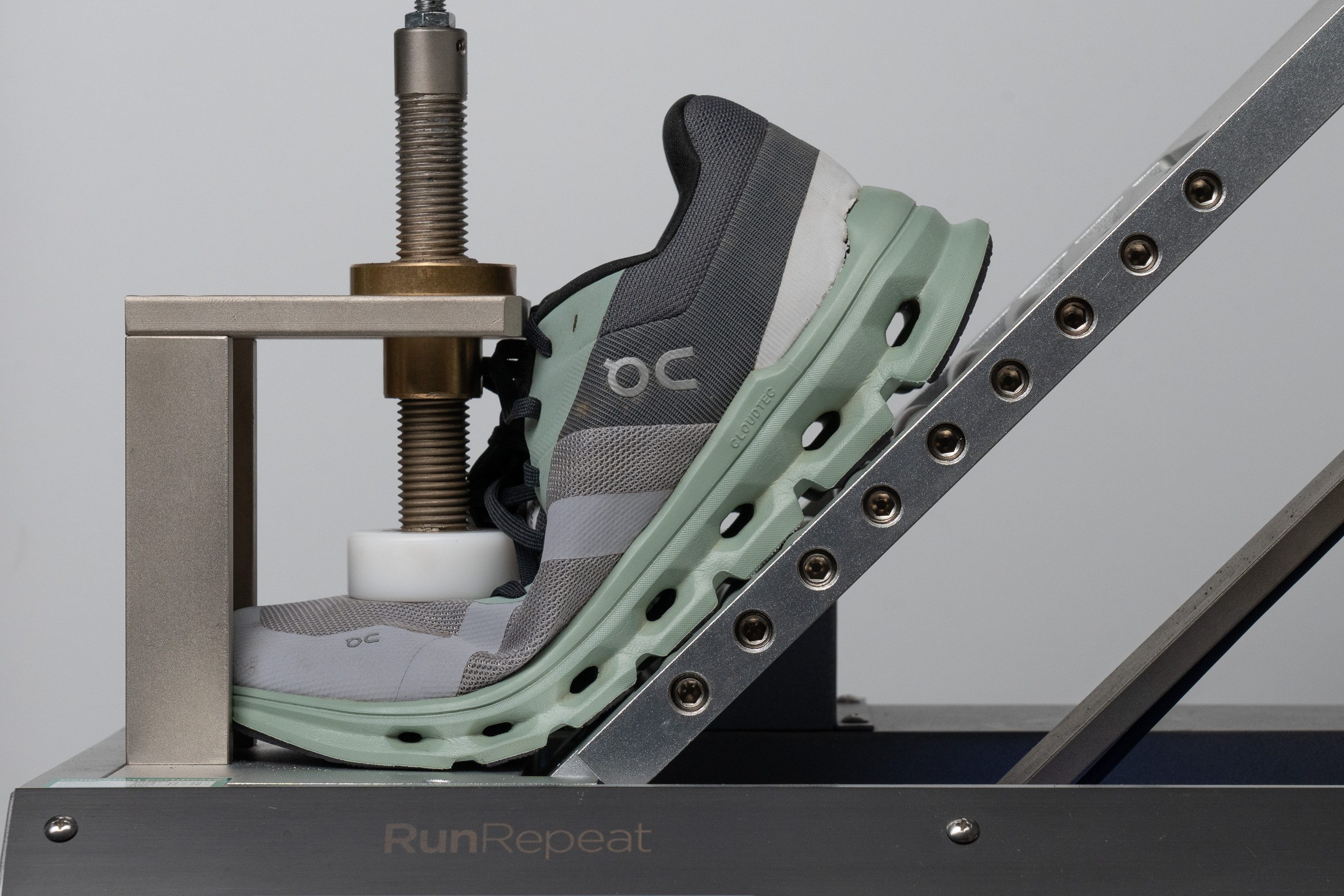
| Cloudrunner | 15.7N |
| Average | 15.3N |
Who should buy the On Cloudrunner
The Cloudrunner is a daily training shoe to consider if:
- you are a beginner-to-intermediate runner
- you run 20K or less at slower paces
- you prefer firmer shoes with a more traditional feel
- you need a touch of stability for tired feet with neutral pronation or mild overpronation
- you want to double your running shoe for casual wear and some gym training

Who should NOT buy
Even though the shoe is in the “Support” category of On shoes, our findings revealed that it’s not a 100% stability shoe. So, if you need that good amount of arch support for flat feet and overpronation, we recommend trying the On Cloudflyer. Or, if you are open to other brands, here are some of the top-rated pronation control shoes out there that we can suggest:
We also find the Cloudrunner too firm, dull, and lacking bounce. If that’s something you want to avoid, we recommend going for the On Cloudmonster. It’s got more cushion (Helion foam) which is softer and noticeably more responsive and lighter. It also has a nice rocker feel to it and is a better option for long runs.
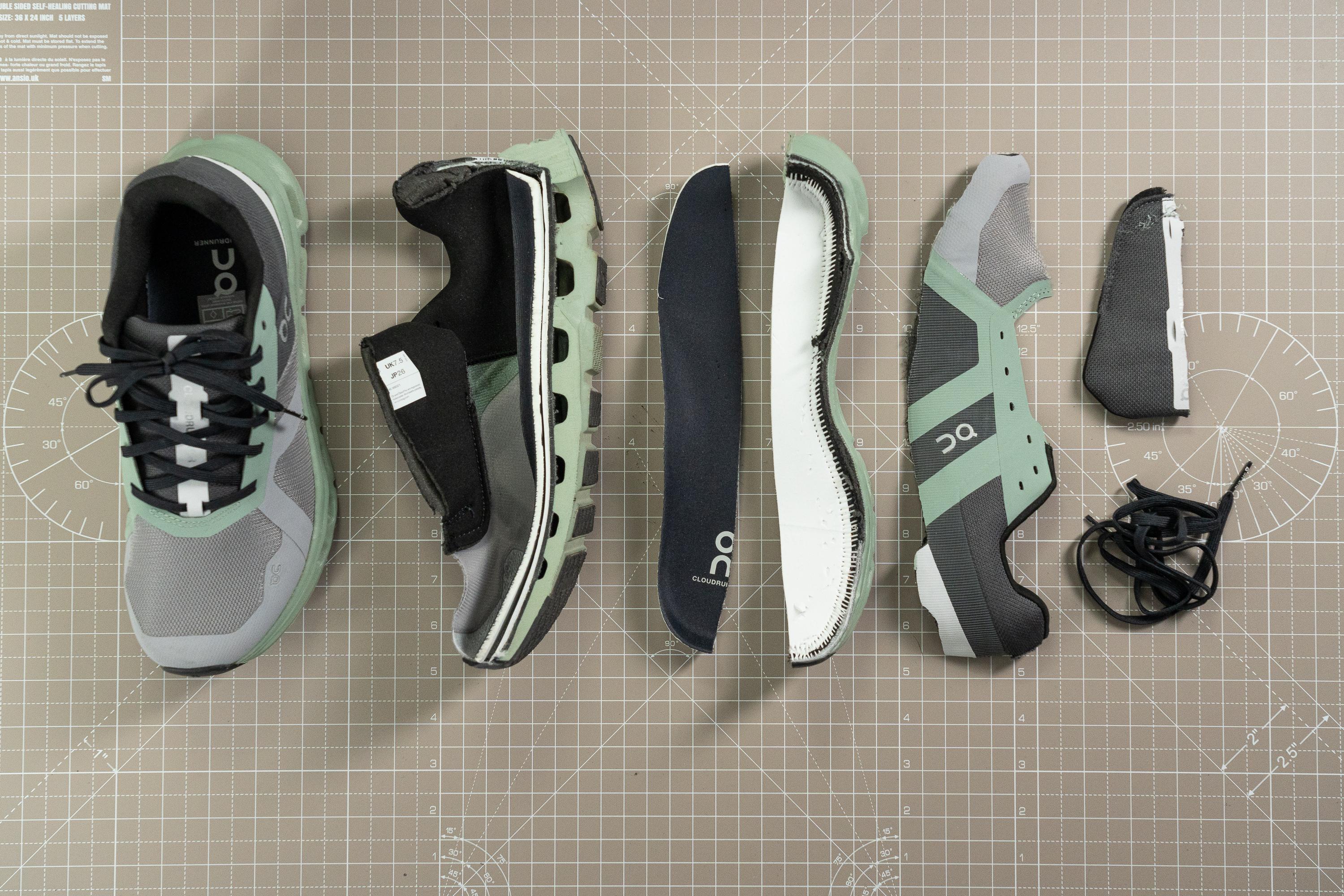
Cloudrunner keeps the feet ventilated
As some runners pointed out, the breathability of the shoe is quite impressive for a heavier daily training shoe. Those who tested it in hot and humid conditions found the airy upper really helpful.
One of the most comfortable uppers from On
The shoe’s upper deserves special praise. It provides a comfy sensation with a plush but not overly thick padding which feels velvety.
The fact that 95% of the fabric is made of recycled materials makes it even more impressive.
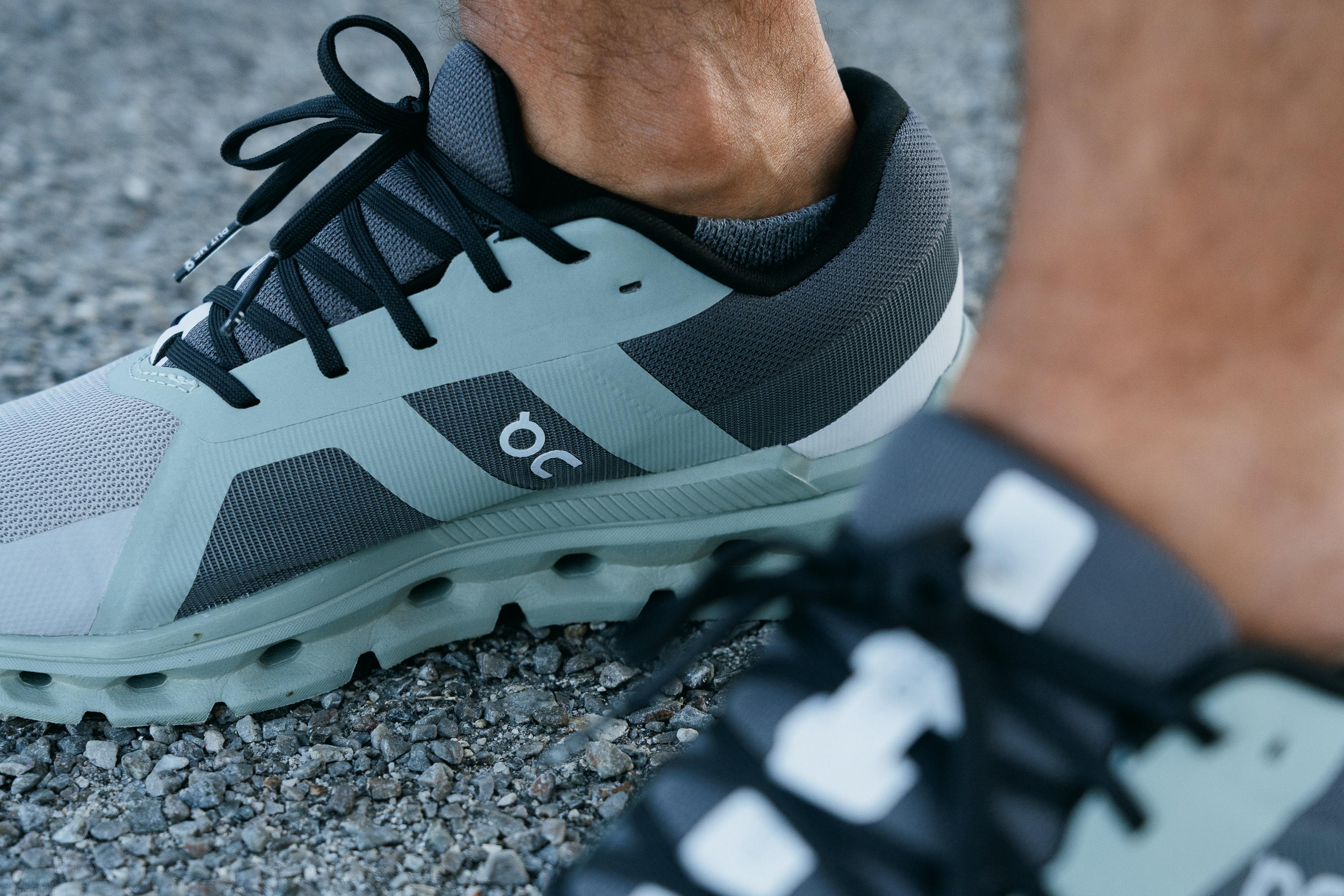
Another welcome feature is the shoe's tongue. Even though it’s not gusseted, we have no complaints about it sliding or shifting. It also buffered the pressure from the laces on top of the foot very well.
We were surprised to find out that the Cloudrunner's tongue is two times thicker than the average! It is 10.1 mm compared to the typical 6 mm.
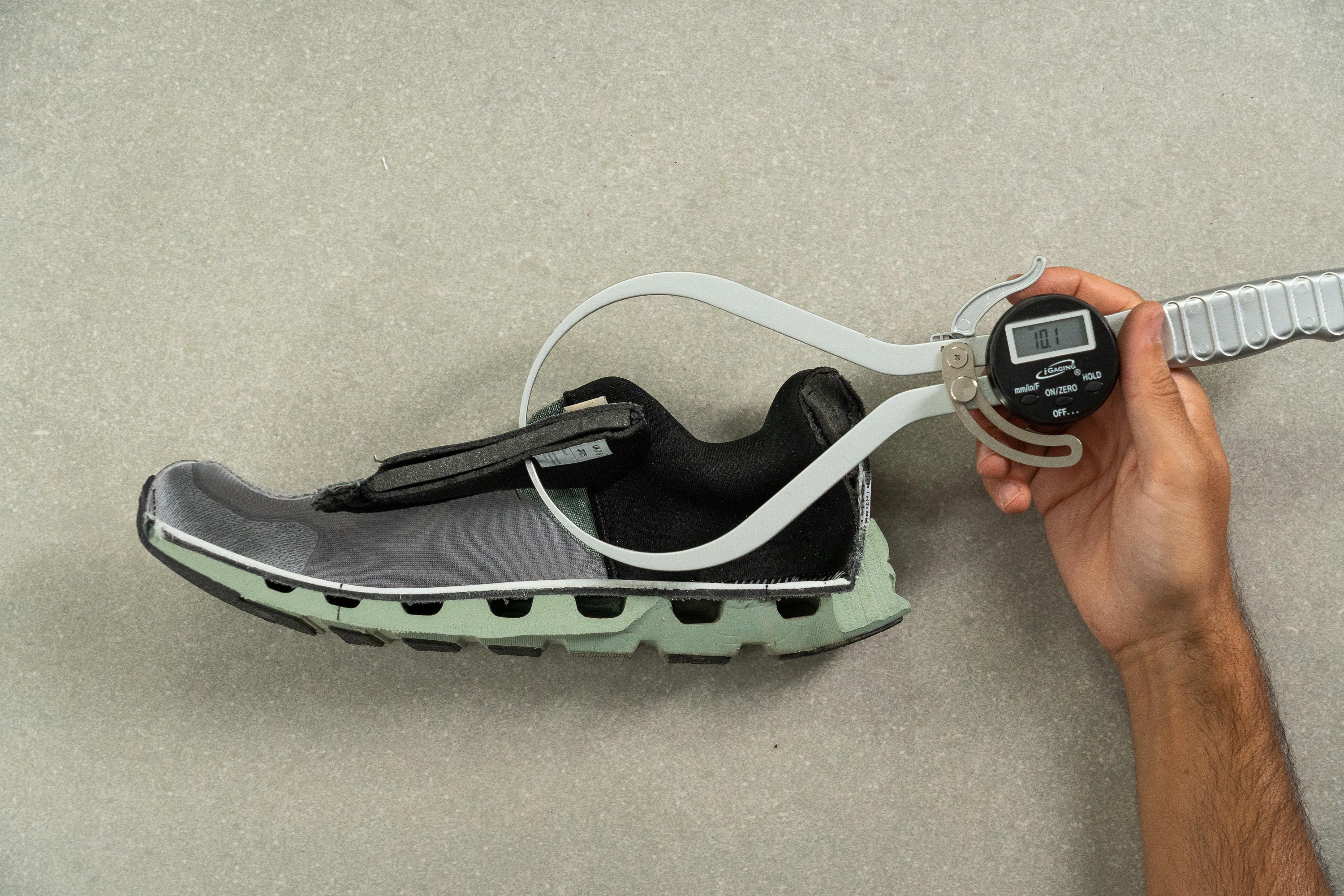
True to size and well-fitting
We did not experience any issues going with our regular running shoe size in the Cloudrunner. But if you want to be on the safe side, check the brand’s size chart.
As soon as we put the shoe on, we were welcomed with that nice, gentle foothold. There was no tightness or pressure points. Our heels were also kept locked down with the shoe's structured and well-padded heel counter.
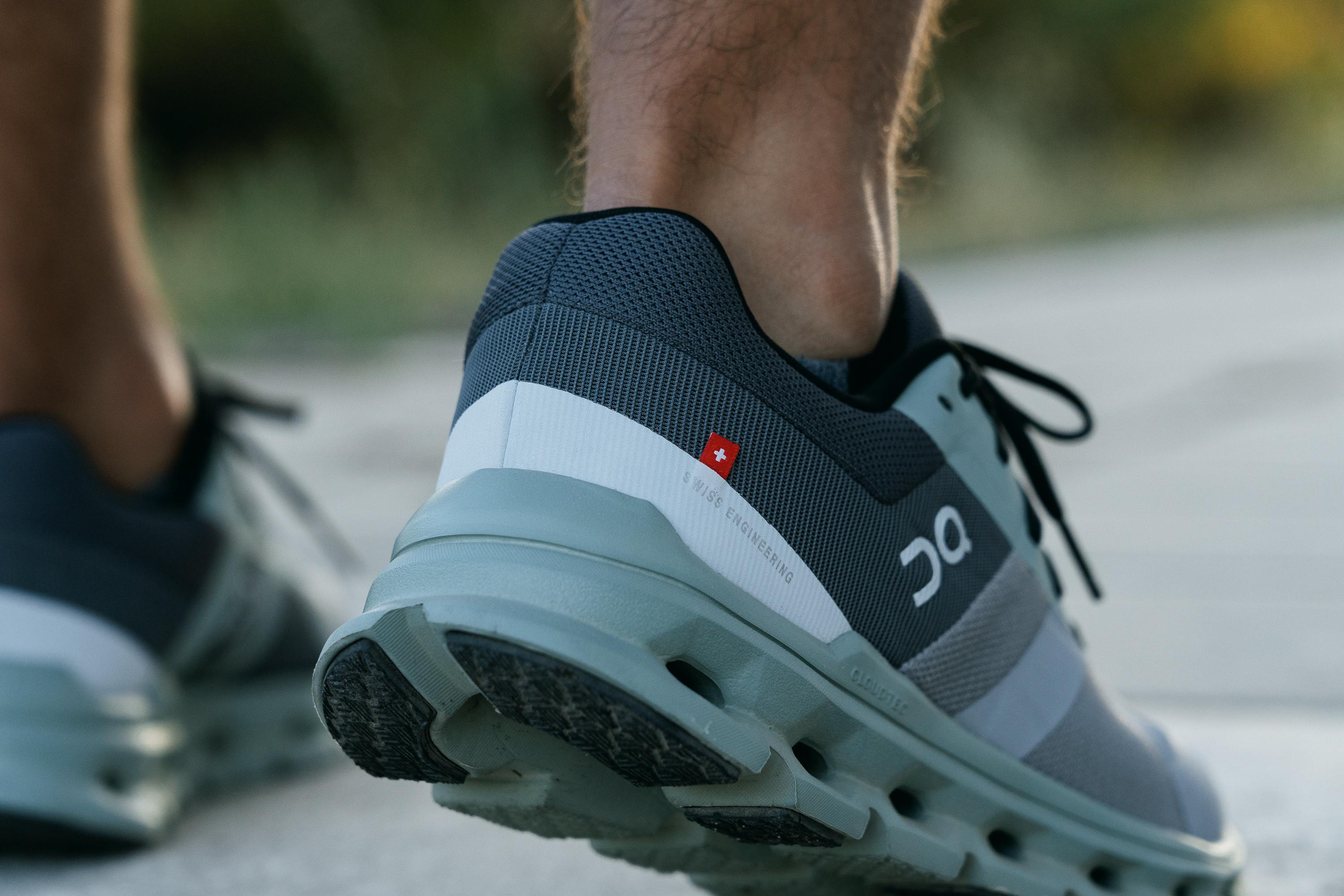
There is also an ample amount of space in the shoe's toebox. Average-sized feet have nothing to worry about!
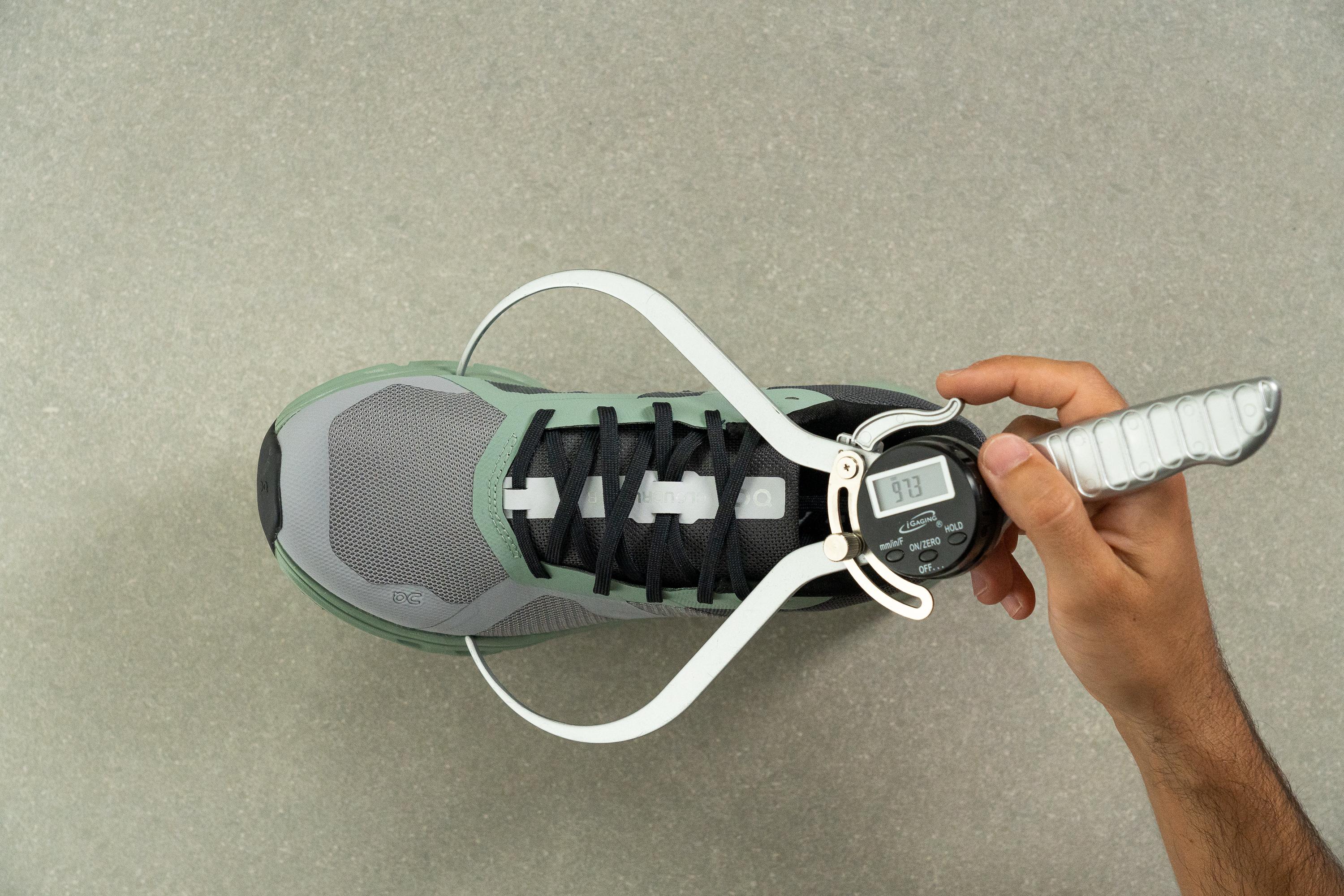
We measured the upper width in the widest part of the forefoot at 97.3 mm. It sits at the average of our lab-tested shoes (98.5 mm).
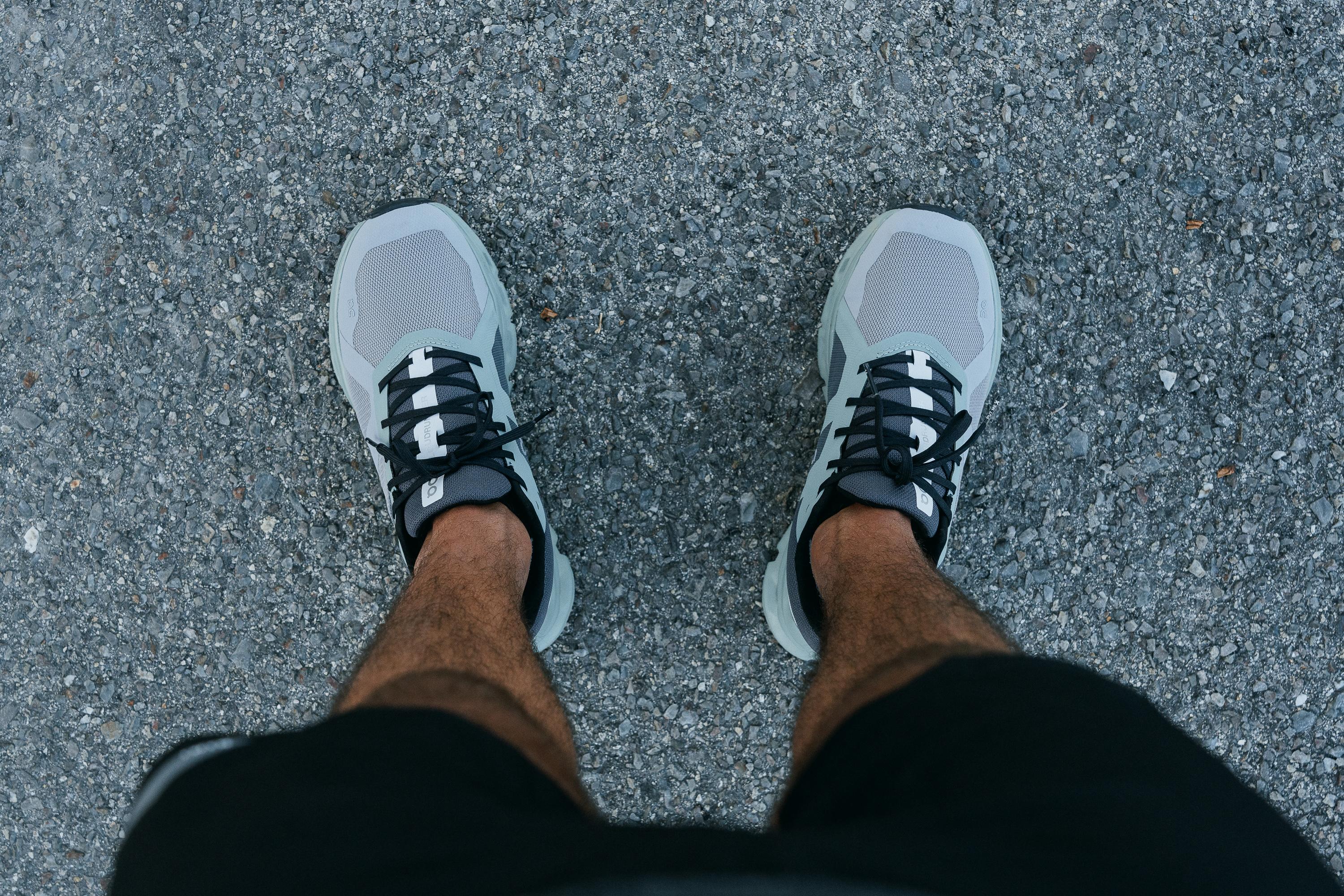
Reflective elements
The On logo lights up when hit with light in the dark. This is helpful for those running early in the morning or late into the night.
Firm cushioning makes the ride not so inspiring
This is where the Cloudrunner started to lose us. Even with the fact that the shoe is meant as a daily cruiser, the ride felt too dull and uninspiring.
Showing 31.2 HA on our durometer, the shoe's foam is indeed firmer than the average by 23%! That's a normal level of firmness for an On Cloud shoe though.
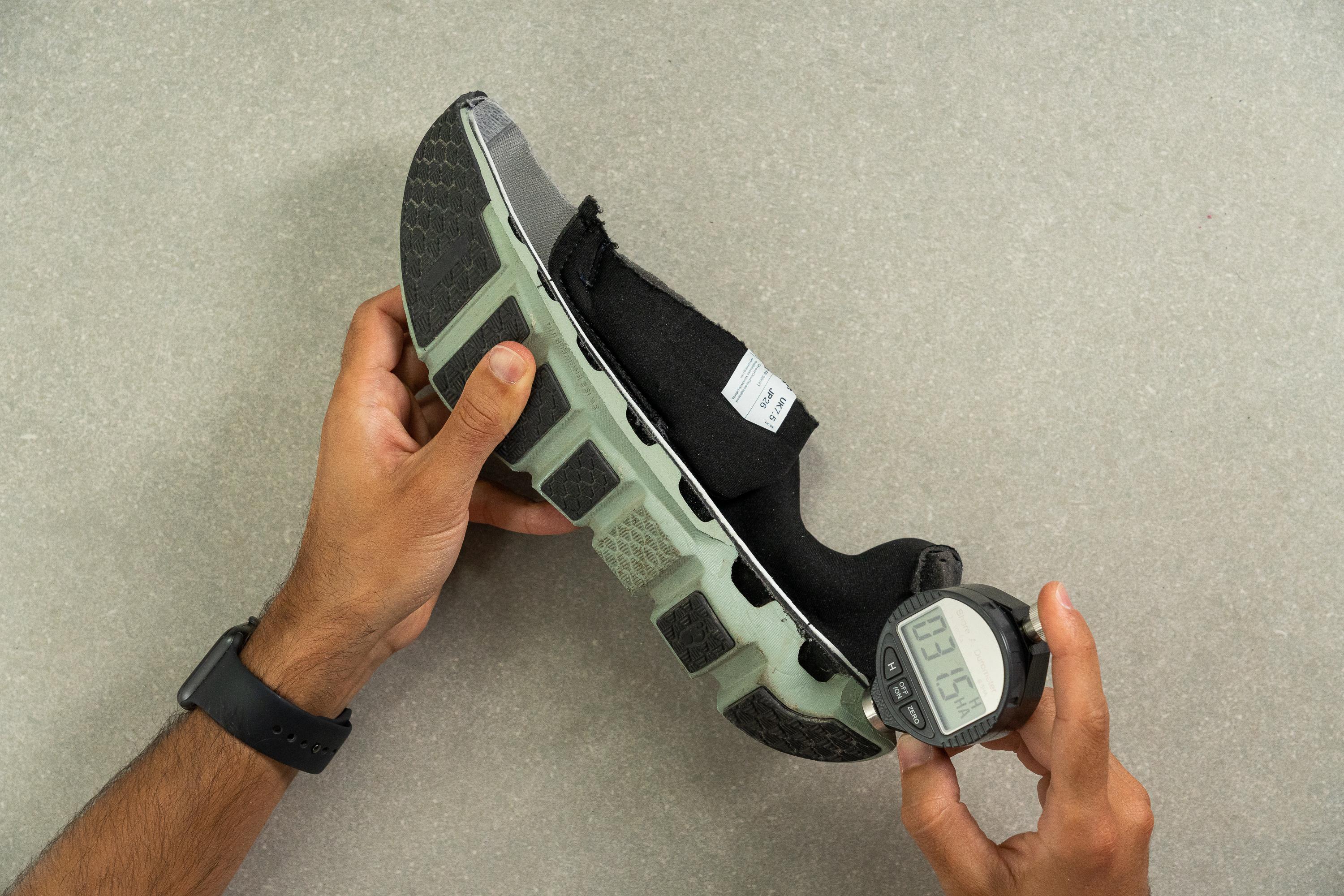
The shoe is not very smooth in transitioning from heel to toe either. Nor there is any pop or explosive toe-off.
We believe that for the price, there are many more daily trainers that are softer, more responsive, and enjoyable for recovery runs, like the Saucony Triumph.
On a lighter note, we don't think that the shoe is a total disaster. The Cloudrunner can work as a daily trainer for short jogs and double for casual wear and even some gym workouts.
Light stability for moderate pronation
Despite being categorised as a stability shoe, we think that it is more of a neutral trainer with minimal elements of stability. It offers guidance for mild cases of overpronation but is not too intrusive for neutral pronators.
The elements that add pronation control to the shoe are:
- wider base with wider Speedboard (full-length plastic plate)
- sidewalls on the lateral and medial sides (the latter are more substantial)
- raised sidewall on the insole
- denser CloudTec elements on the medial side
- thicker and reinforced mesh on the inside
- structured heel counter (heel hold and stability)
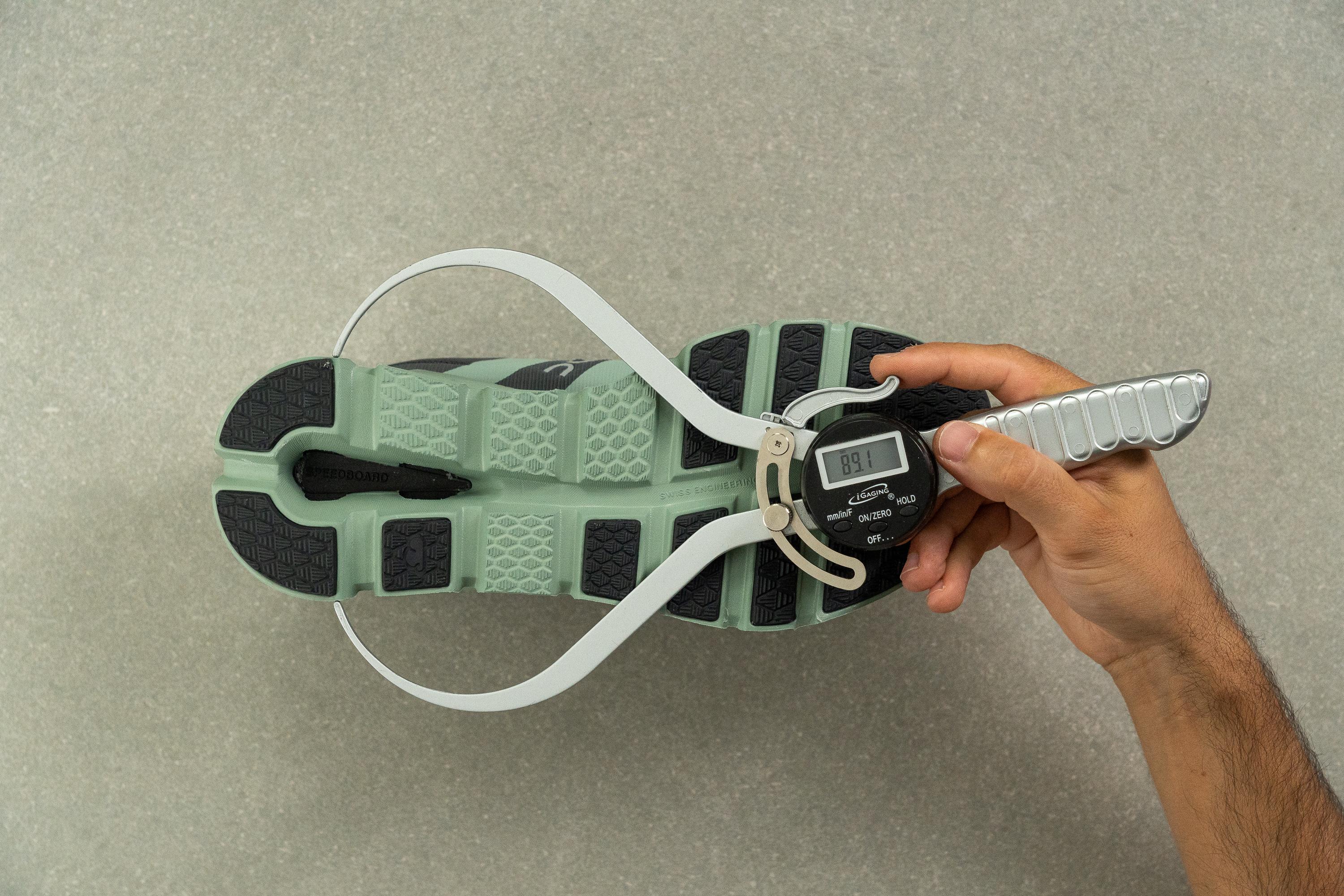
Based on our calliper measurements, the Cloudrunner has a slightly wider-than-average base in the forefoot (2 mm wider).
But do keep in mind that this shoe is less stable than the dedicated stability shoes.
Feels a touch heavy
We weren’t very excited about the shoe’s cushioning-to-weight ratio. Especially given that the more cushioned On Cloudmonster manages to weigh 0.9 oz (26 g) lighter in a men’s US 9.
However, compared to other daily trainers with stability features, the Cloudrunner sits right at the average (10.6 oz / 300 g).
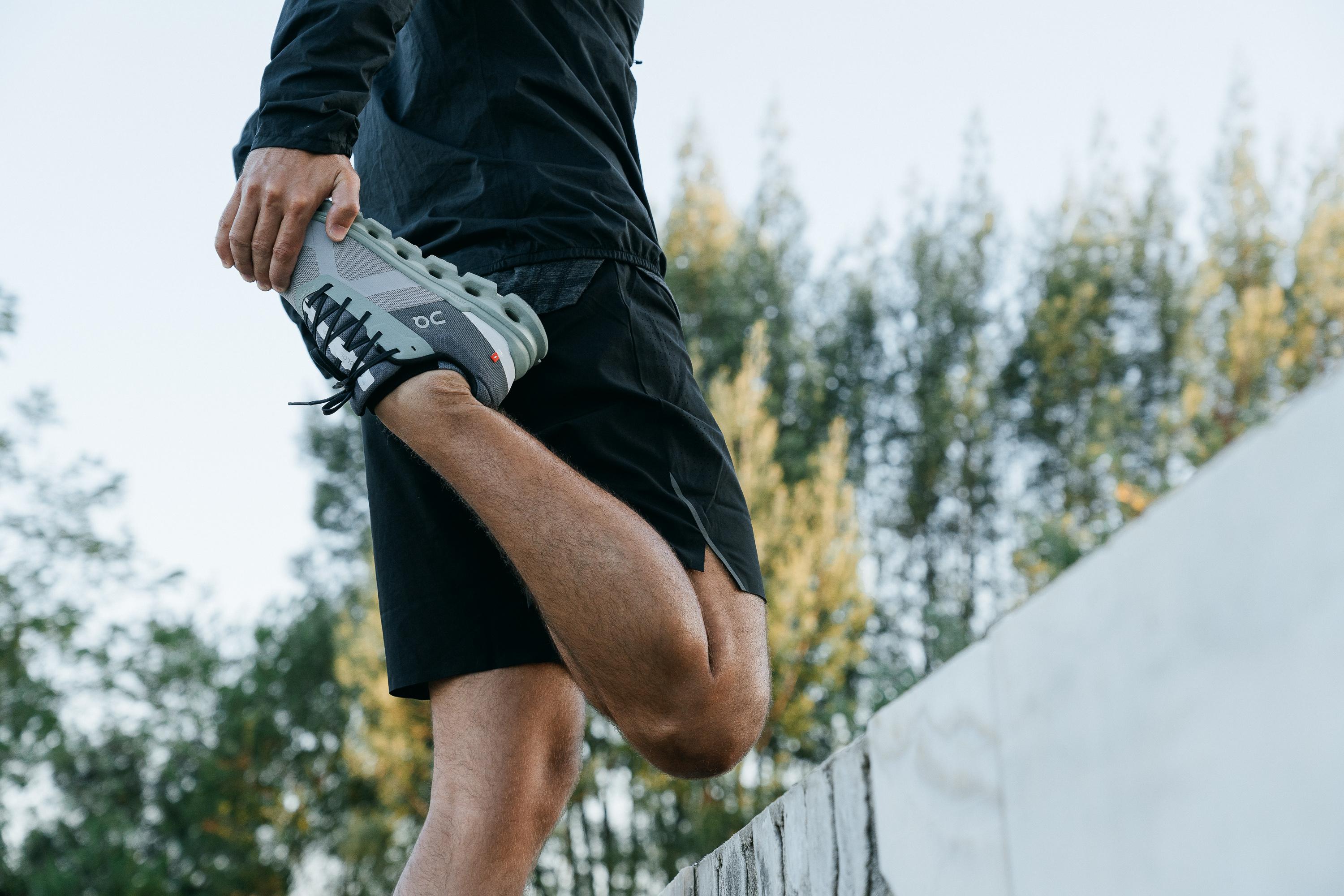
Excellent grip on dry and wet surfaces
The Cloudrunner offers excellent grip on wet surfaces and is even adequate for light dry trails. Cornering in this shoe has never been a problem for us as there is plenty of grippy rubber in the high-impact areas.
Another great news is that this is probably the first On running shoe that doesn’t catch pebbles (the brand’s common shortcoming). This is thanks to the shallower gully on the bottom.
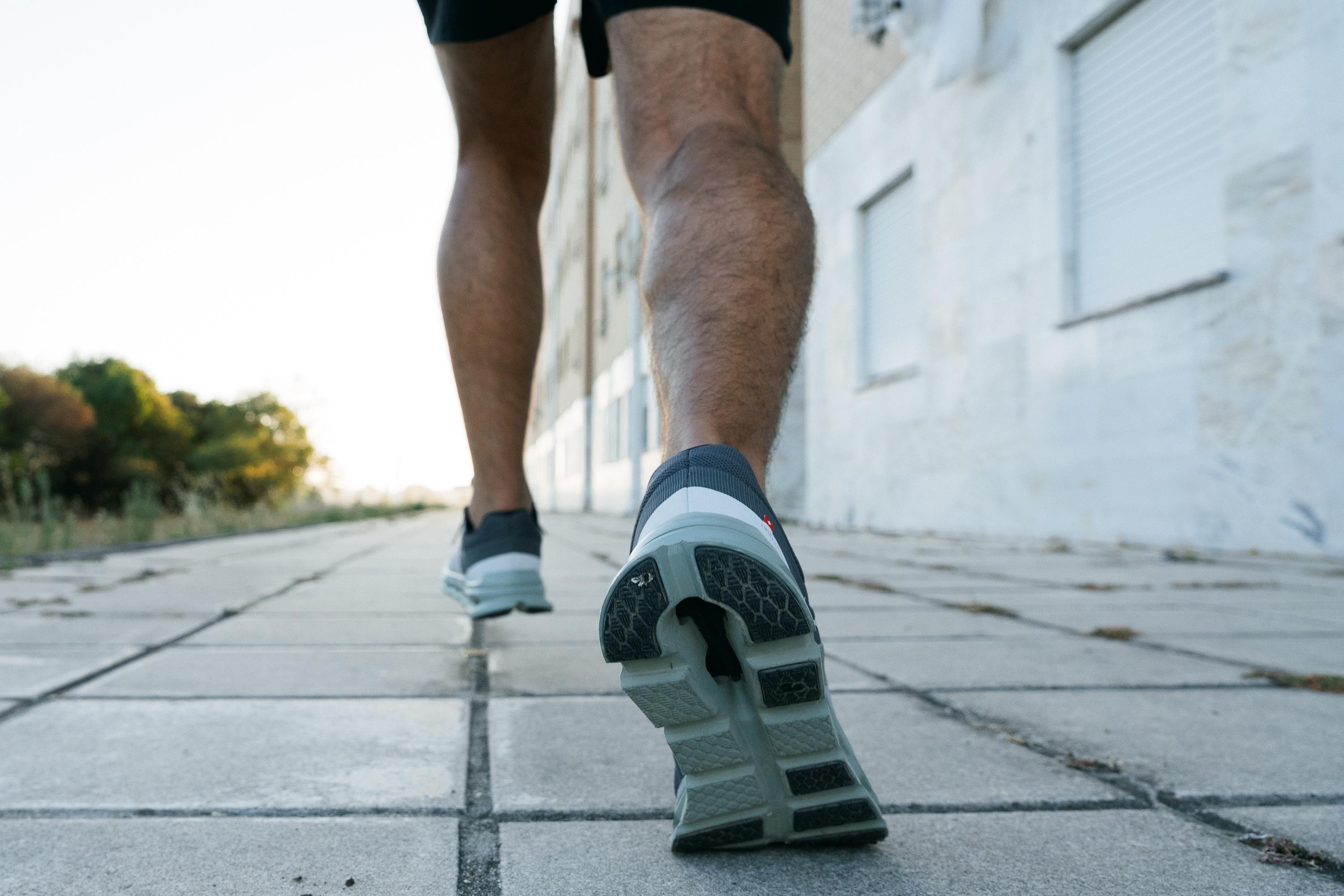
Swiss quality in the Cloudrunner
Just like most shoes from the brand, the Cloudrunner features a high-quality design. We could feel its craftsmanship straight from the box.
This and the fact that we saw no wear signs after 30 miles of testing convinced us that there is lots of life to be expected from this shoe.

Attractive aesthetics
The visual aspect of the shoe instantly grabs attention on the street! The shoe's overall silhouette, colour options, and the way it looks on the foot make it truly exquisite.
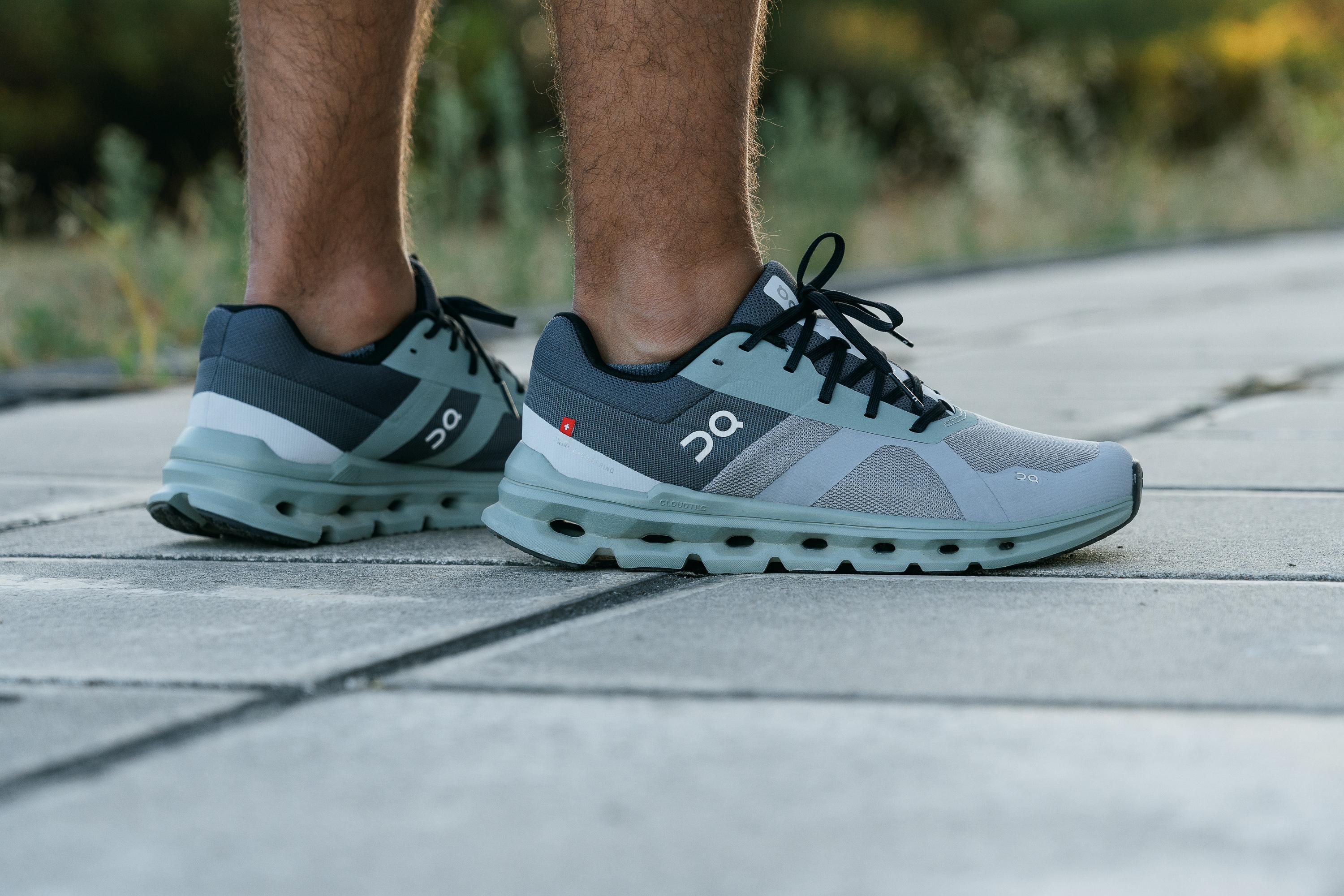
On continues sustainable policy in the Cloudrunner
Those who care about environmentally friendly products will appreciate the presence of recycled materials in the shoe.
In total, they make up 30-35% of the shoe. The highest concentration is found in the upper (90-95%). The tongue, vamp, heel, and laces are all made with 100% recycled polyester.
